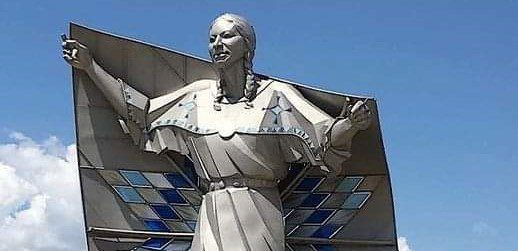Co-Authors: Elizabeth M. Pepe, DO, FACOFP & Allison A. Sakara, NP, MSN, RN, PHRN
“Nature was not dangerous but hospitable, not forbidding but friendly. Our faith sought the harmony of man with his surroundings. The other sought the dominance of surroundings. For us, the world was full of beauty. For the other, it was a place to be endured until he went to another world. But we were wise. We knew that man’s heart, away from nature, becomes hard.”
– Luther Standing Bear
In this series of Determinants of Health in a One Health/One Nature One Framework paradigm, we explored 4 of 5 important determinants of health topics that have not been consistently part of the Social Determinants of Health conversation.
- Non-human species (animals and plants)
- Individual behaviors/choices
- Shared environments
- Regional environments
- Mental health environments
This final article explores the influence of tribal and extended families as a determinant of health. Studies show that, in cultures where the nuclear family is the norm to the exclusion of the extended or tribal family, health outcomes for the same illnesses are different than in cultures where these norms are reversed. This is similarly true for animals – the benefits and threats to health for animals in a group vs living in isolation are not the same.
As the United States celebrates Indigenous Peoples past and present during Native American Heritage Month, we explore the impact of tribal and extended families through the lens of the experience of Indigenous Peoples.
In the 2022 Proclamation on National Native American Heritage Month, the Whitehouse acknowledges that the United States has not always delivered on its promise of equal dignity and respect for Native Americans.
“For centuries, broken treaties, dispossession of ancestral lands, and policies of assimilation and termination sought to decimate Native populations and their ways of life. But despite this painful history, Indigenous peoples, their governments, and their communities have persevered and flourished. As teachers and scholars, scientists and doctors, writers and artists, business leaders and elected officials, heroes in uniform, and so much more, they have made immeasurable contributions to our country’s progress.”
“We are also helping Native communities heal from intergenerational trauma caused by past policies. Last year, the Department of the Interior launched the Federal Indian Boarding School Initiative to shed light on the harmful history of forced cultural assimilation at these academic institutions. We are investing in Tribal language revitalization, protecting Tribal voting rights, and working with Tribal partners to tackle the crisis of missing or murdered Indigenous people.”
Prior to the arrival of Europeans in North America, the Indigenous people led a simple life, they were North America’s first and most complete One Health/One Nature/One Medicine culture, treating and curing illness with herbal and traditional medicine, gathering season foods, harvesting animals for sustenance only, never taking more than what they needed. Food has always been a significant source of Native identity, cultural expression, and tribal participation. They foraged for fresh and healthy greens, fruits, and other unadulterated food items which were in-season at the time of need. Although smoking of meats was practiced, Indigenous Peoples obtained all the nutritional requirements needed from their traditional foods. They were true hunter-gatherers, lived in true communities, and children were taught how to live, survive, and thrive in the traditional “old ways”. Traditional food is associated with better health, staves off hunger longer than processed food, tastes better and is more nutritious than many of the foods introduced by the Europeans and later the American government. The Indigenous Peoples were generous with each other, respected other members of their tribes, took care of their elders, and balanced daily life with a spirituality involving the earth and all of its creatures.
As more and more non-natives arrived, the indigenous people were forced into ever-shrinking areas and were forced to begin a new way of life. Changes in lifestyle were influenced by the many treaties with Native Tribes. In addition to the loss of the cultural relationship with the natural environment came changes in the regional environment as Tribal Nations were relocated and treaties broken. The lands upon which they depended for their food, shelter, clothing and medicine now had restricted access. As Indigenous Peoples were systematically “westernized” they lost the autonomy to make decisions regarding their determinants of health. They were also forced to gain employment, which further restricted their ability to obtain nutritious traditional food via their past hunter/gather activities or pursue their traditional cultural activities. This change in diet is thought to have been the catalyst for the unprecedented sudden rise in chronic diseases such as obesity, diabetes mellitus, hypertension, chronic kidney disease, and heart disease.
Due to the disruption of the traditional determinants of health associated with tribal and extended family influences, Indigenous Peoples now suffer overwhelming rates of obesity, diabetes, and heart disease. Many studies have been performed as to the possible causes and mitigations which could be performed. As a result, Indigenous People in the US now have access to impressive free medical clinics consisting of primary care, pediatrics, dental, optometry, on-site pharmacies, physical therapy, behavioral health, dietary and nutrition clinics, smoking cessation programs, and encourage exercise, some clinics even have exercise facilities. Some clinics in especially rural areas also have an emergency department and inpatient care as they are considered to be critical access facilities. These clinics are funded by the Indian Health Services (IHS), grants, and the federal government. These clinics utilize electronic health records (EHR) and “best practices” to promote routine and essential preventive medicine services. While the clinics now offer wonderful services, health care can still be considered inequitable due to the difficulty in reaching the tribal-approved clinic.
Tribal, cultural and extended family factors are generally positive determinants of health. The experience of Indigenous Peoples is a cautionary tale for the negative impact of disrupting these traditional practices and imposing the practices of another cultural system.










